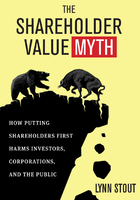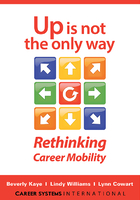by Marshall Goldsmith
Many years ago, a friend and I went surfing on Manhattan Beach in Los Angeles. At the time, I was a student of Nichiren Shoshu, a Buddhist sect that encourages chanting to overcome suffering and bring about good in the world.
Even though I was not an advanced surfer, I was anxious to test my skill against a big wave. But the waves were small that day, so I chanted the signature Nichiren chant:
Nam-myoho-renge-kyo
Nam-myoho-renge-kyo
After a time, a giant wave rolled toward us! I tried to surf it-and broke my neck in two places.
This story came to mind as I read Alison Eyring's excellent book. Pacing for Growth is a welcome corrective to the dysfunctional-yet incredibly common-belief that pushing past our limits is the best strategy for growth, in business, and in life. I tried to grow too fast that day on Manhattan Beach, and I still have the scars to prove it.
Many organizations and their leaders could stand to learn this lesson. I've been an executive coach for more than three decades, and over that time I have seen exceptional and promising people burn the proverbial candle at both ends, only to flame out spectacularly. In a way, it's hard to blame them. In our culture, heroes are overachievers who break down barriers to do the impossible. Movies, books, and TV shows are full of rogues and mavericks who drive themselves past the breaking point to accomplish a mission.
This kind of character might be very successful in fiction, but reality is another matter. There's not as much drama in working within one's proven capacity to produce results, but as Alison argues cogently in these pages, that's what works. Growing too fast creates breakthroughs in the short term, but that kind of success doesn't last. Anyone who drives too hard is bound to crash and burn.
Her personal experience as an endurance athlete provides a powerful analogy. Train too hard and disregard the science on how to improve performance gradually and safely, and you'll get hurt (and wind up sidelined). The case studies she describes include some compelling examples of companies that heeded this advice-and others that didn't.
Alison advises organizations to follow the principle of "Intelligent Restraint," which brings to mind the words of Mahatma Gandhi: "When restraint and courtesy are added to strength, the latter becomes irresistible." We're all endowed with strength of one kind or another. Of course, both individual leaders and organizations should use their strengths, but the trick, as Alison points out, is not to use them up. Balancing them with a little courtesy and restraint goes a long way. Knowing when to pull back, recalibrate, do something less difficult, or take a break may contribute more to long-term productivity and growth than driving forward despite exhaustion and overextension.
When workers overdo it, they exude a quality I've described as "nojo" (the opposite of "mojo"). We have mojo when we radiate confidence that our work is purposeful, powerful, and positive-and the world recognizes it. We exhibit nojo when we're disengaged, feeling victimized, stressed out, lethargic, or merely getting by. In my experience, organizations that try to grow too fast, not bearing in mind the limits of their capacity (as Alison suggests), wind up as breeding grounds for nojo.
That's not to say that testing boundaries is a bad idea. It's how innovation happens, and I applaud people who believe in giving extra effort toward a goal. But when that effort comes at the expense of recognizing real limitations, it turns into hubris and an unappealing exceptionalism.
In his brilliant 2009 book The Checklist Manifesto, Dr. Atul Gawande describes how central line infections in intensive care units dropped dramatically when doctors followed a simple five-point checklist that involves cleaning skin, washing hands, and using a sterile dressing. What saved lives was not boldness, audacity, and risk-taking but a basic regimen. And yet some doctors resisted. Like many of us who believe that we're smart and competent, they insisted that only complexity was worthy of their attention. In my book Triggers: Creating Behavior That Lasts, I note this tendency to harbor contempt for simplicity, structure, and routine.
Alison's book advocates the thoughtful, measured approach, and I wholeheartedly agree. She touts the importance of routines; I believe in them so much that I developed a system called the Daily Questions that involves asking ourselves a series of questions each day to ensure that we stay on track with our main priorities. I preach this to my classes and my coaching clients, and I do it myself, to make sure I stay engaged and positive, look after my family and my health, and do other things that are important to me. I even pay some one to call me every day so that I'll remember to answer them, because I know how easy it is to get distracted, especially when I travel.
The goal is to keep growing, every day. Amid the many exigencies of daily life and business, it's easy to forget not only to pace for growth but to prioritize it. In my late thirties, I was flying around the country to companies, giving speeches about organizational behavior. This work paid well, and I liked it. But my mentor, Dr. Paul Hersey, showed me that it was holding me back. "You're too good at what you're doing," he told me. "You're making too much money selling your day rate to companies."
This sounded so much like praise that I almost missed the heart of his critique. "You're not investing in your future," he said. "You're not researching and writing and coming up with new things to say. You can continue doing what you're doing for a long time, but you'll never become the person you want to be."
Because I respected Paul, I heeded his advice. He was right, after all. If I stayed comfortable, eventually I'd get bored or disaffected. And by then it might be too late for me to follow another path. Unless I cut back on the work I was doing, I would never create something new for myself. I wouldn't grow, and I'd end up "sacrificing the future on the altar of today," as Peter Drucker has said.
Pacing for Growth is filled with thoughtful strategies for avoiding these and other mistakes. Even if you don't have Alison's talent for distance running, you can learn the principles that have helped her grow sustainably in both athletics and in business. Absorb its lessons, and you can, too.
Marshall Goldsmith is a leading executive coach, leadership thinker, and keynote speaker. He is the million-selling author of 35 books, most recently Triggers: Creating Behavior That Lasts, Becoming the Person You Want to Be. More information is available at marshallgoldsmith.com.















